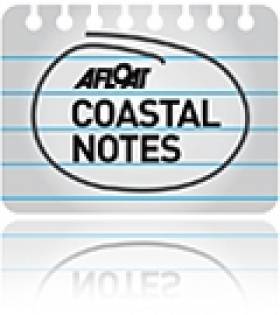Displaying items by tag: algae blooms
European space satellite imagery could replace human monitoring as an effective “health check” of Ireland’s coastal environment, according to new research by NUI Galway scientists.
As The Times Ireland edition reports, earth observation data sets recorded by European Space Agency (ESA) satellites can monitor the spread of algal blooms and other key information which is normally collected in field surveys.
A study of satellite imagery for eight Irish estuaries led by NUI Galway (NUIG) scientist Dr Liam Morrison with researcher Sita Karki showed this type of monitoring could be very cost-effective.
Estuarine and coastal waters worldwide have been facing increasing challenges from generalised use of industrial fertilisers since the second world war, the researchers note.
Macroalgal blooms are regarded as a “clear sign” of nutrient over-enrichment which estuaries are particularly susceptible to - reducing both fish species and water quality.
An Environmental Protection Agency (EPA) report of 2019 found that transitional waters - as in estuaries and coastal lagoons - in Ireland have poorer water quality than groundwater systems, rivers, lakes, and coastal waters.
The research team analysed imagery for the eight Irish estuaries captured by the Sentinel-2A/B, Landsat-5, and Landsat-8 satellite missions.
The locations ranged from Rogerstown, Malahide and the Tolka on Dublin’s north side to Bannow Bay, Dungarvan and the lower Blackwater in the south-east to Courtmacsherry and Clonakilty in Co Cork.
The study was a collaboration between NUIG and the Irish Centre for High End Computing, and was funded by the EPA.
It is published in the current issue of Frontiers in Marine Science.
Read more in The Times Ireland edition here
Meeting for Bantry Bay Fish Farm Opponents Tonight
#COASTAL NOTES - Bantry Bay has reached its capacity for salmon farming, says the committee formed to oppose a proposed new facility at Shot Head.
Save Bantry Bay has called a public meeting for supporters tonight (24 March) at Eccles Hotel in Glengarrif, Co Cork, starting at 8.15pm - where chairman Kieran O'Shea will give a presentation on the group's "wide-ranging objections", as The Fish Site reports.
Minister for the Marine Simon Coveney is currently considering the licence application for Marine Harvet's proposed salmon farm at Shot Head in Adrigole.
Concerns among the committee's members include the potential spoiling of the area's natural beauty having a knock-on effect on tourism, and the environmental consequences of algae blooms from nitrogen and phosphorous waste.
Local fisherman fear that a fish farm of more than 100 acres would see the closing off of part of an "important ground for shrimp and prawn".
Possible infection of wild salmon in local river systems by sea lice from farmed salmon is also an issue, with the Environmental Impact Statement for Shot Head highlighting an outbreak of lice at Marine Harvest's facility in Roancarrig two years ago.
The Fish Site has more on the story HERE.
- Coastal Notes
- Fishing
- Bantry Bay
- Co Cork
- fish farm
- salmon farm
- Shot Head
- Adrigole
- Glengarrif
- Eccles Hotel
- Save Bantry Bay
- Minister for the Marine
- Simon Coveney
- Marine Harvest
- tourism
- environment
- algae blooms
- nitrogen
- phosphorous
- waste
- shrimp
- prawn
- infection
- Wild Salmon
- sea lice
- environmental impact statement
- Roancarrigh
























































